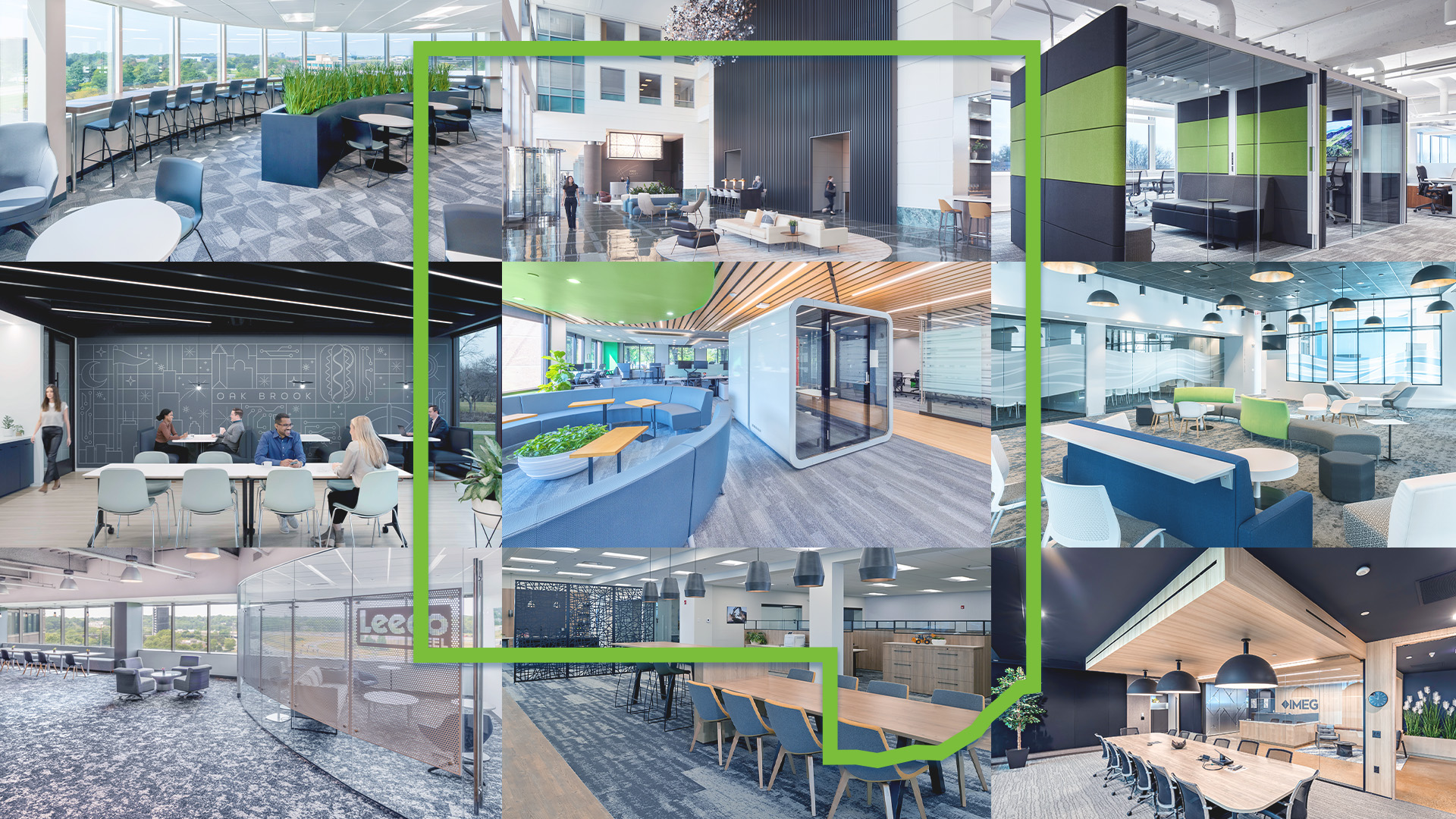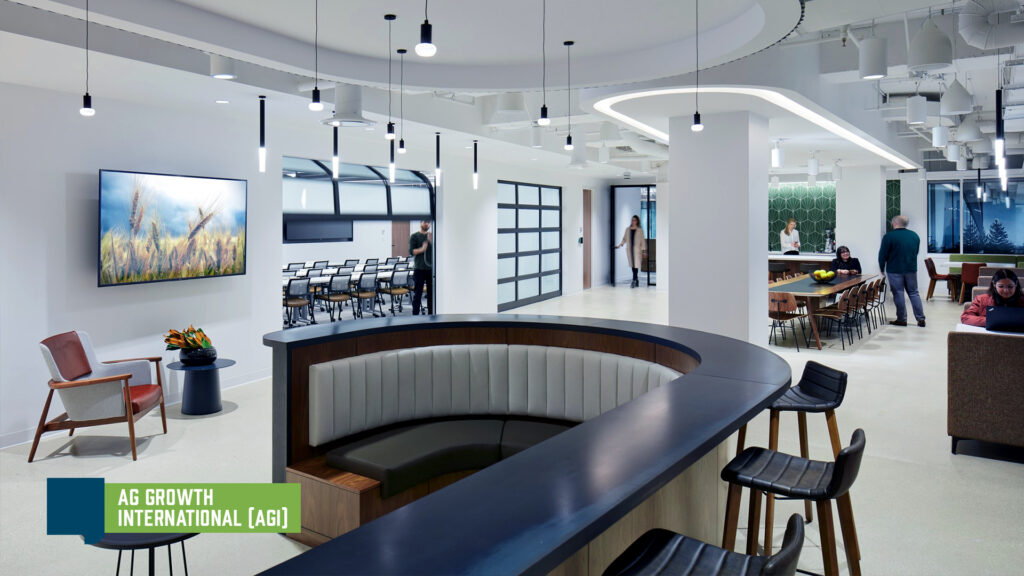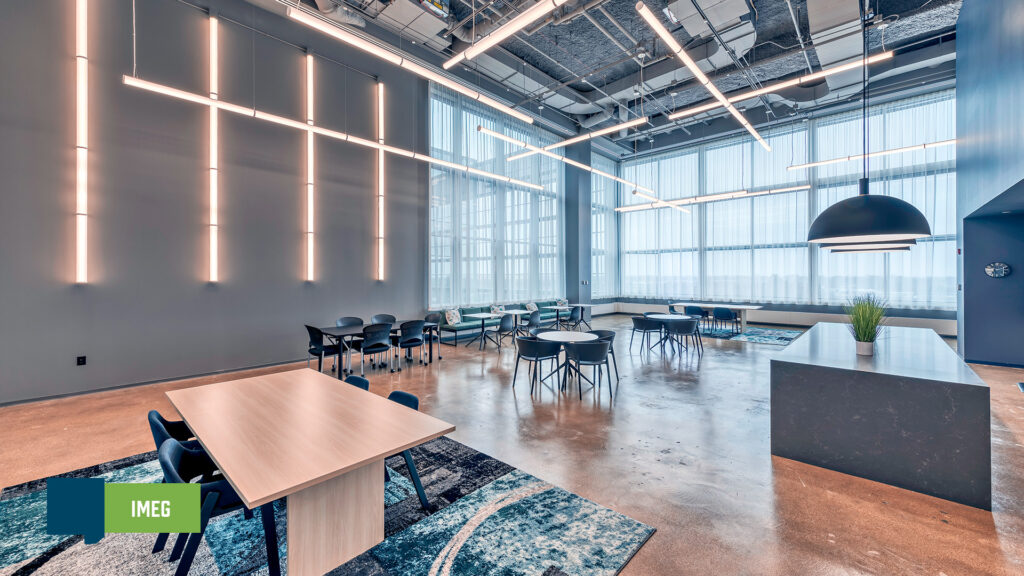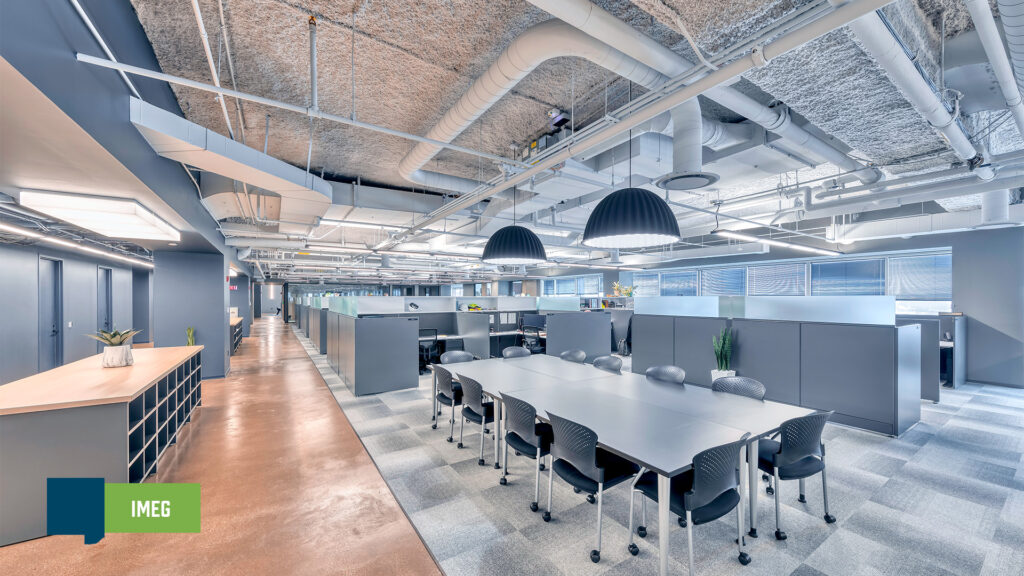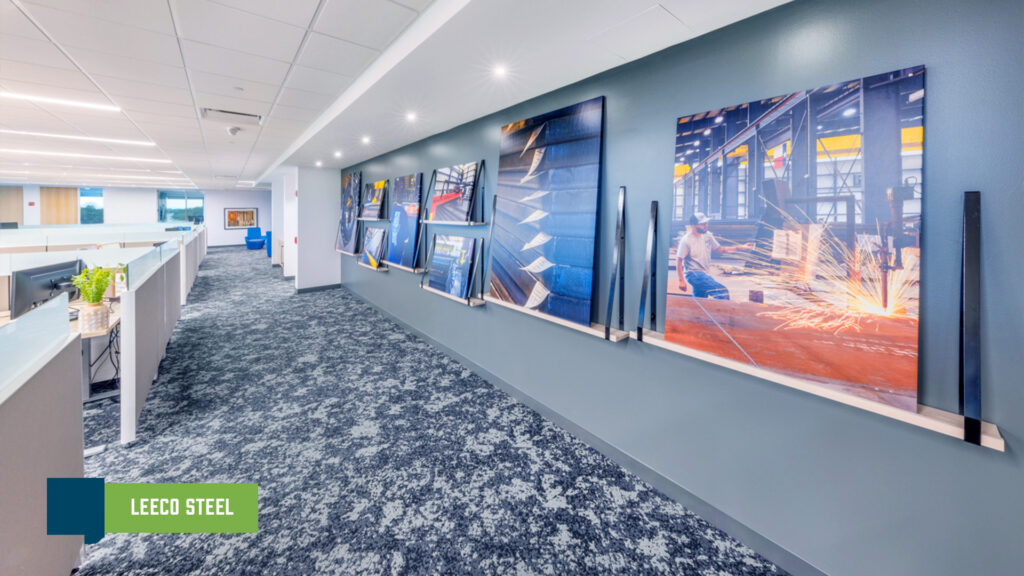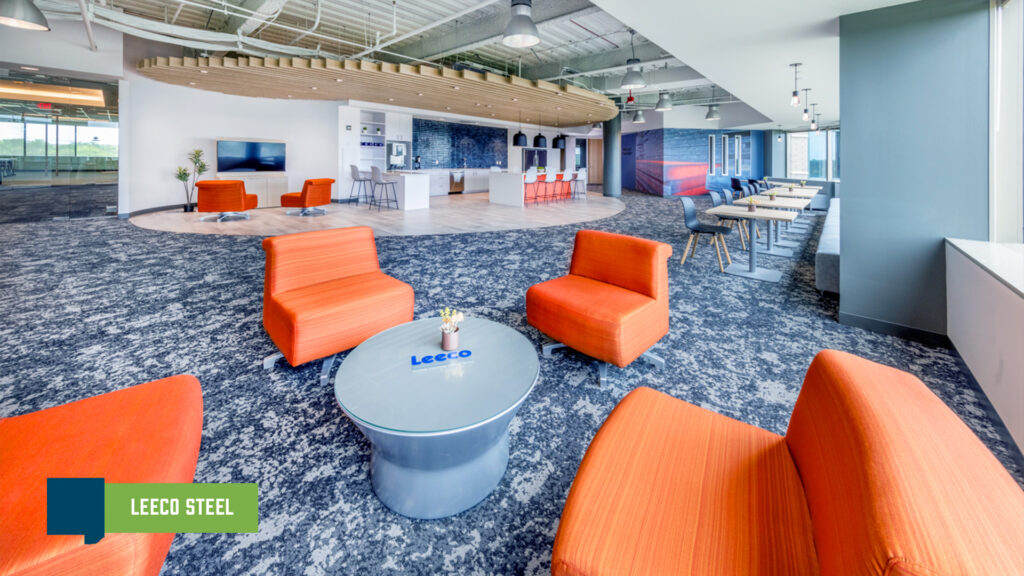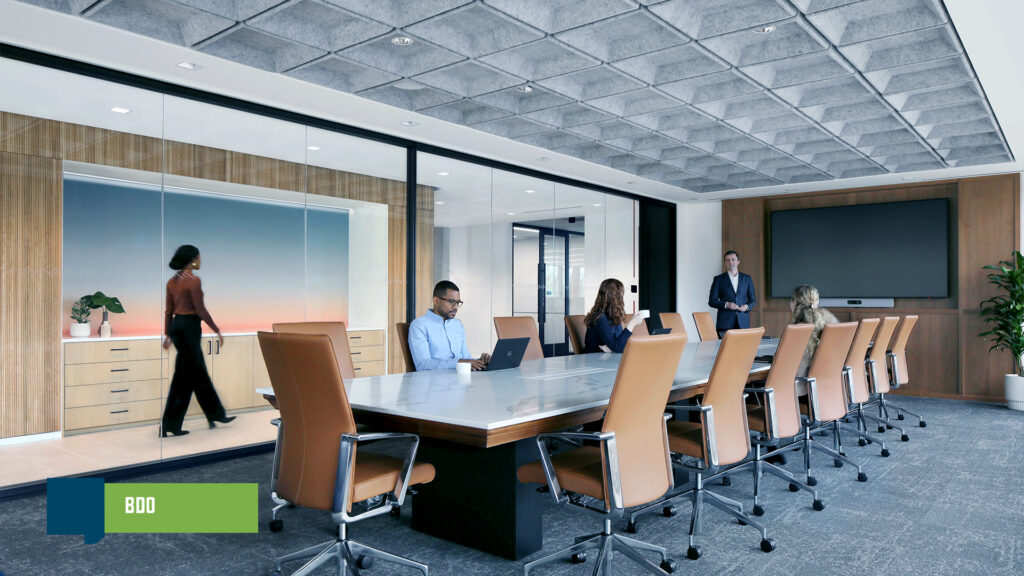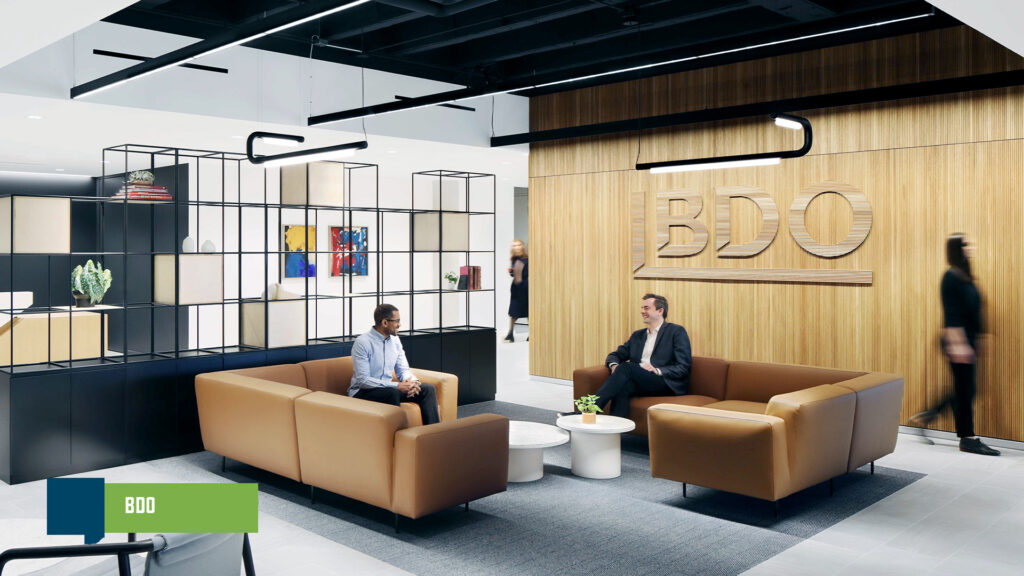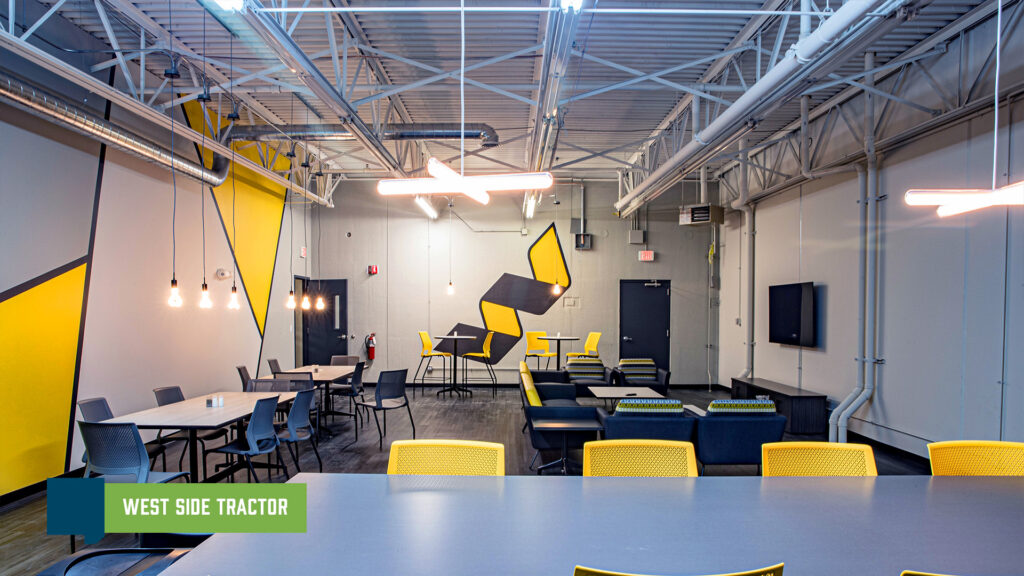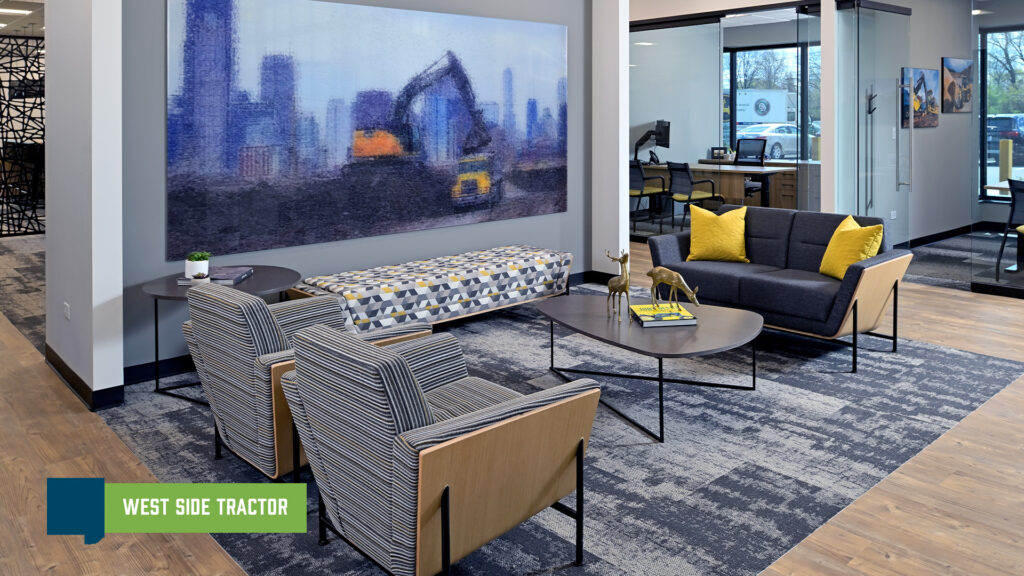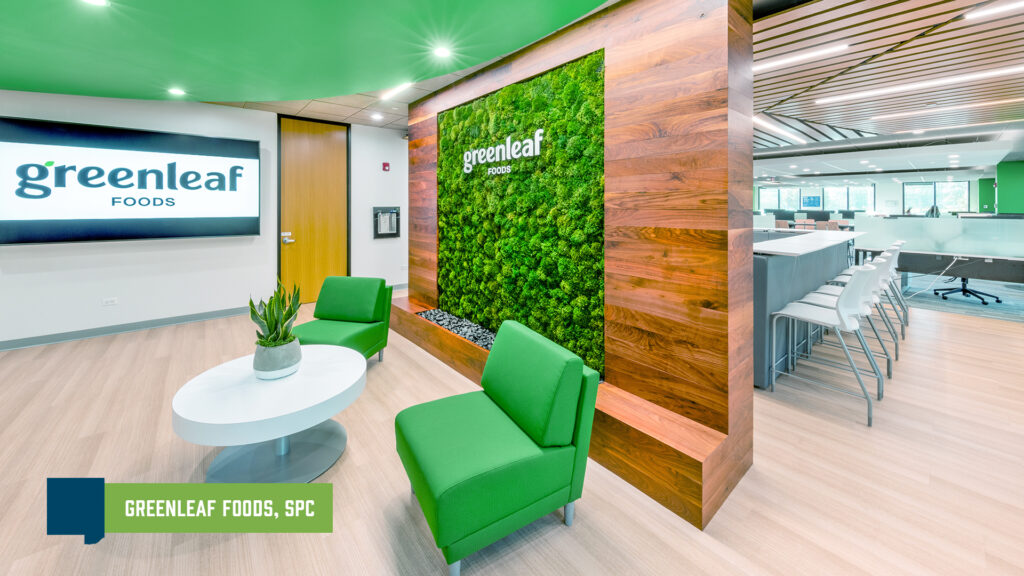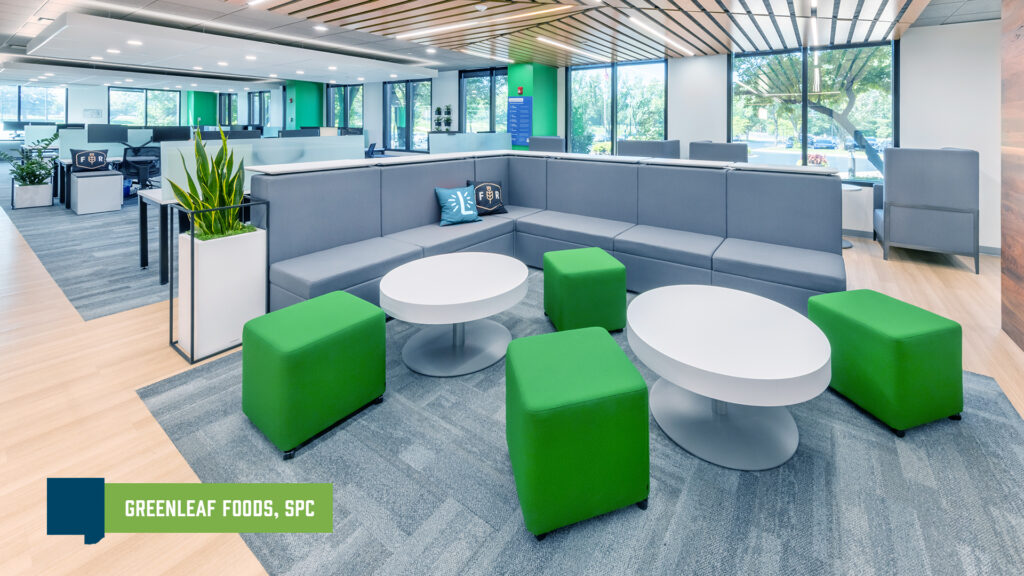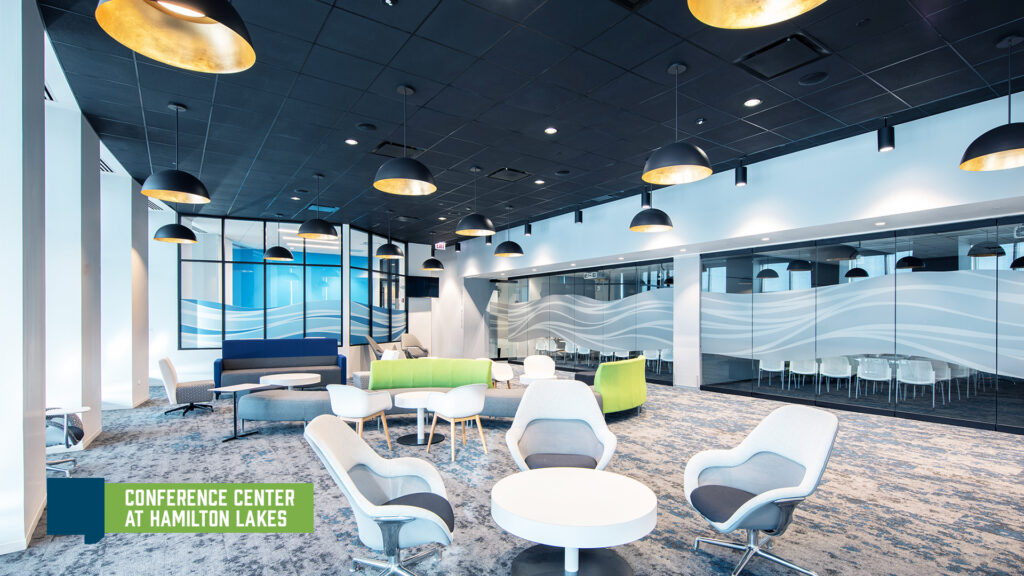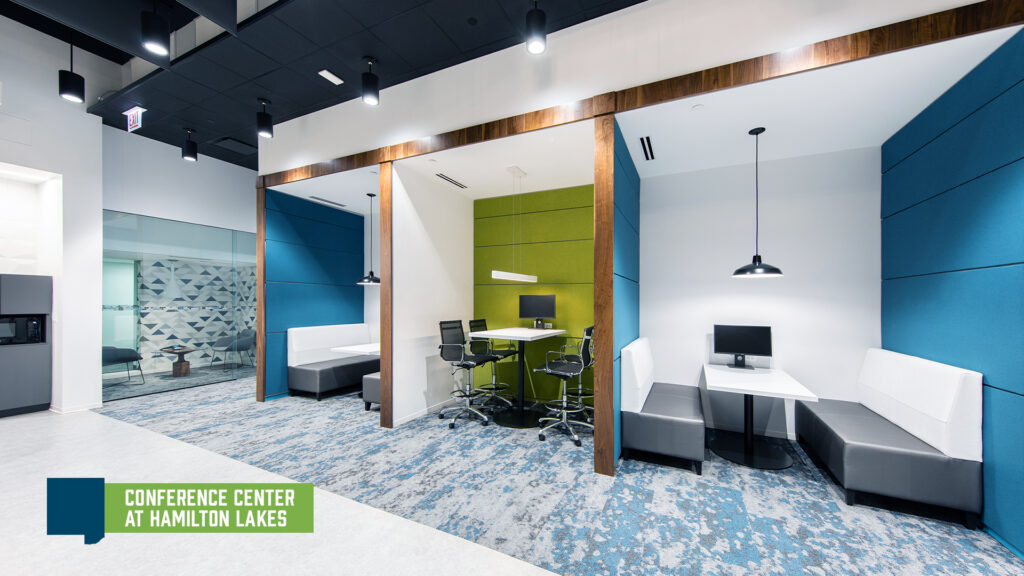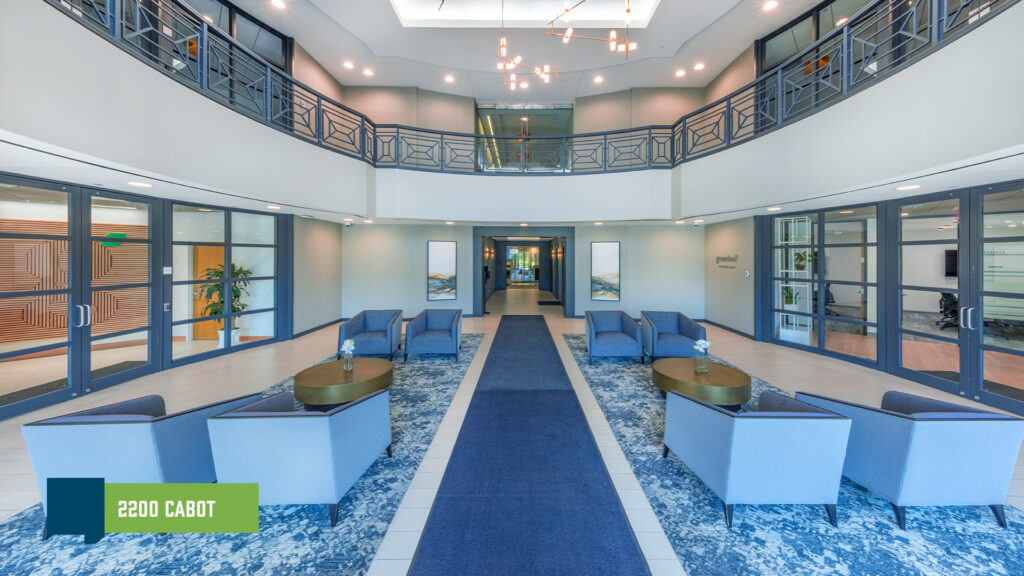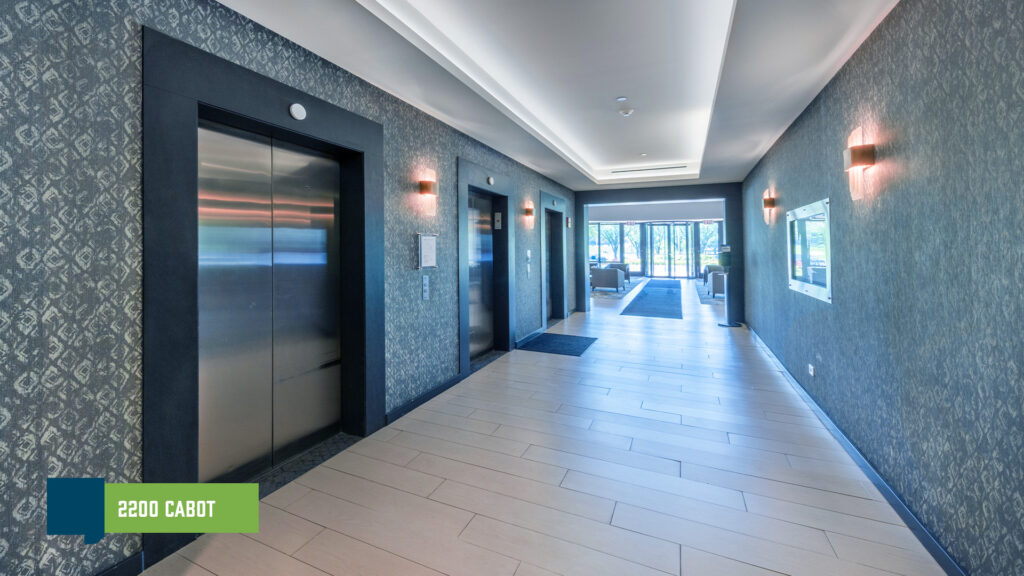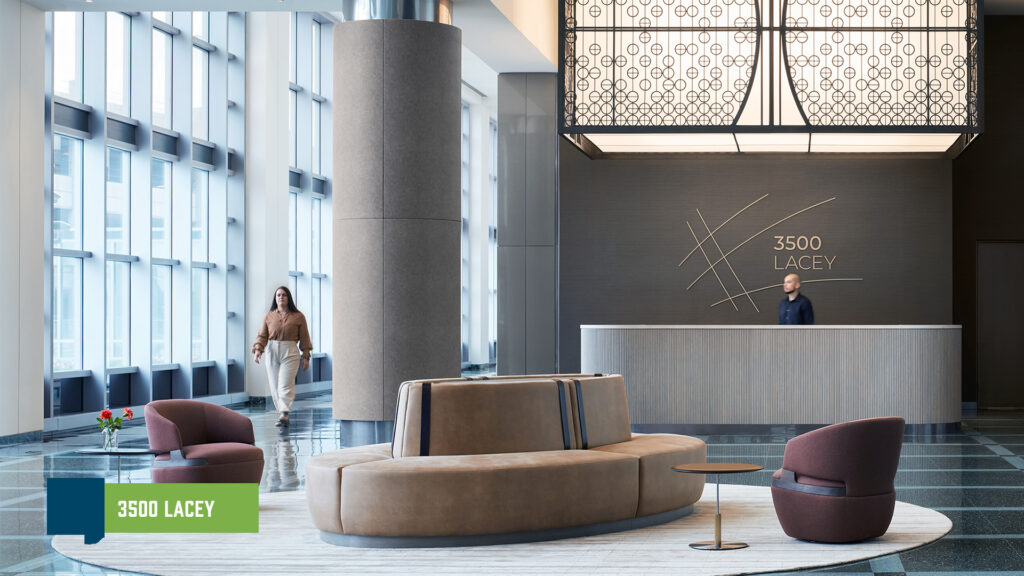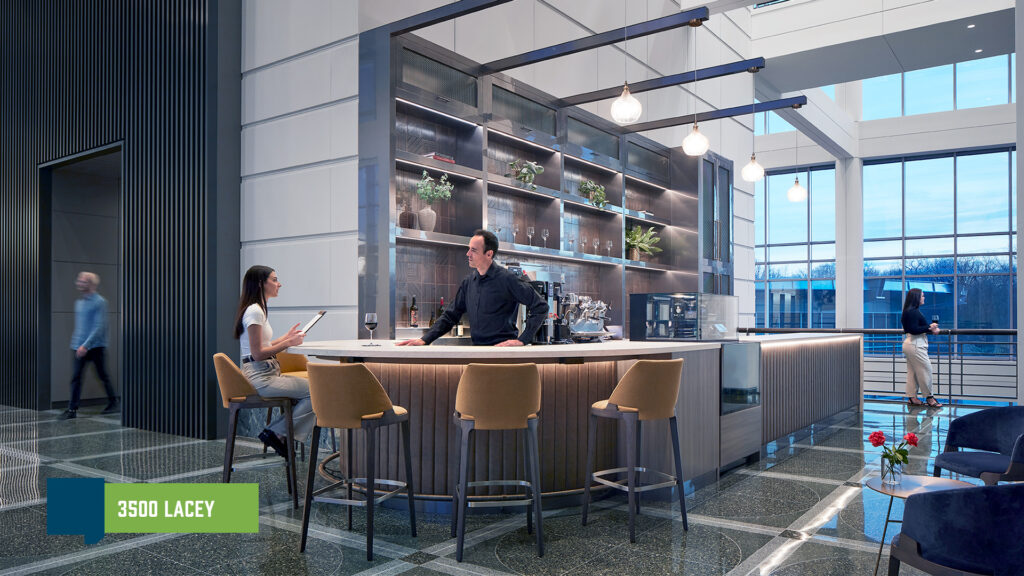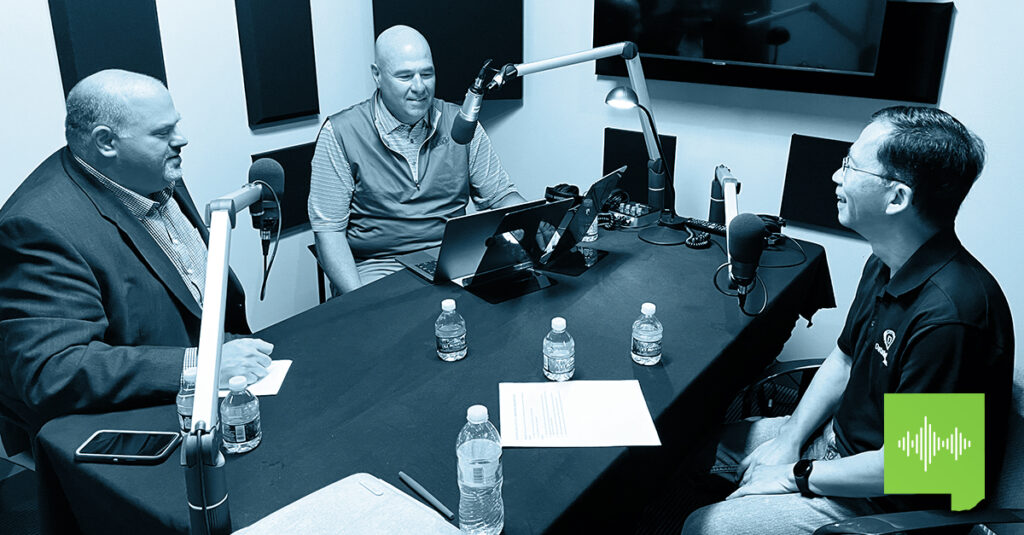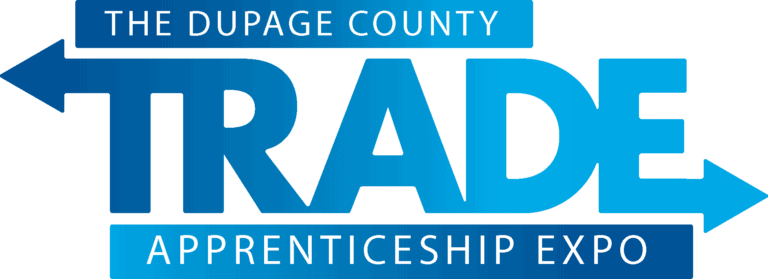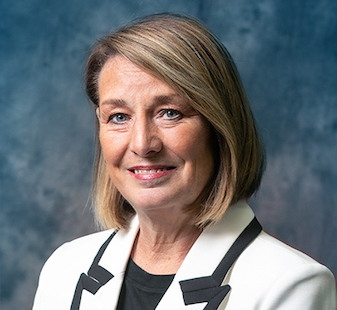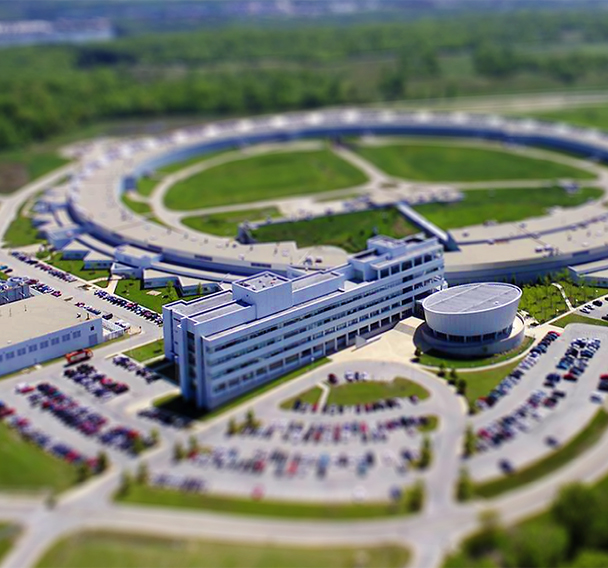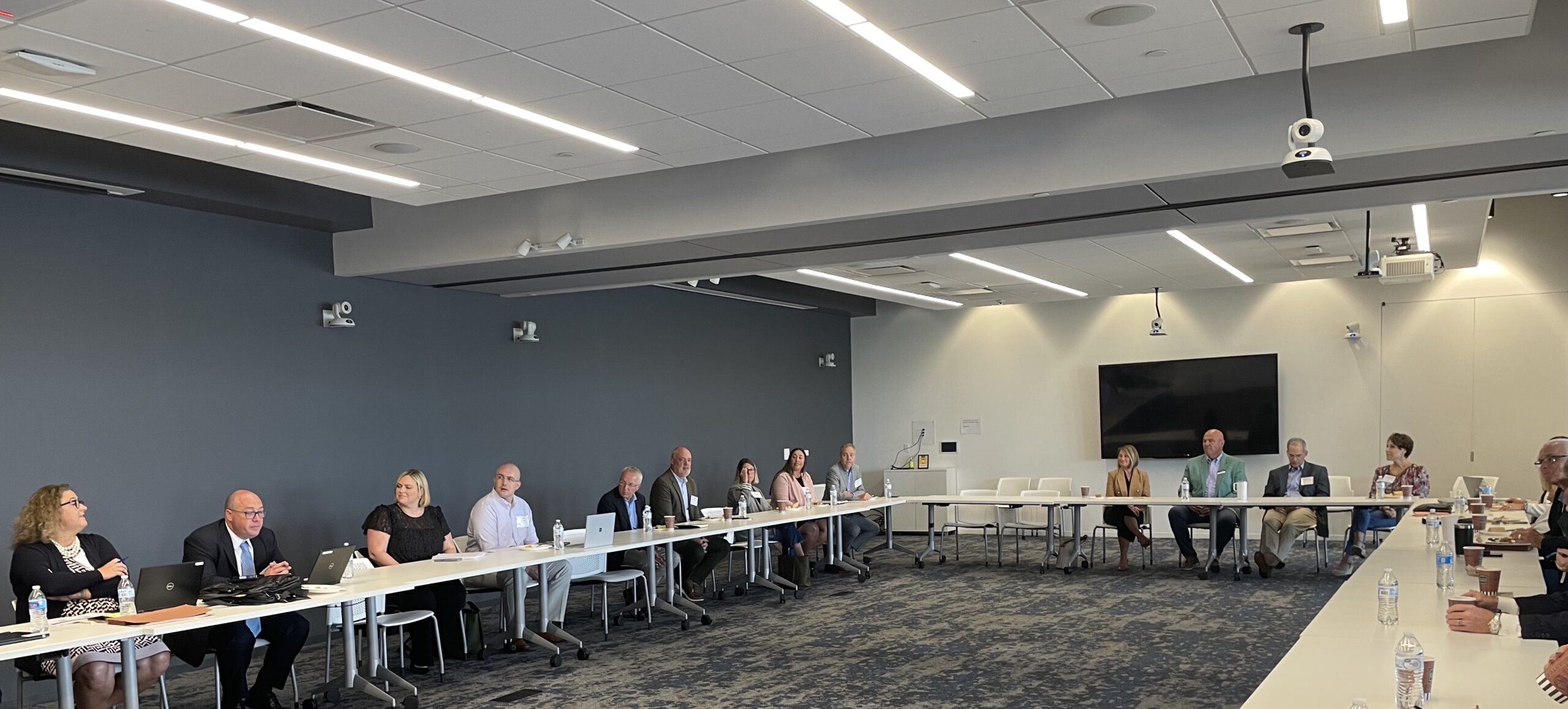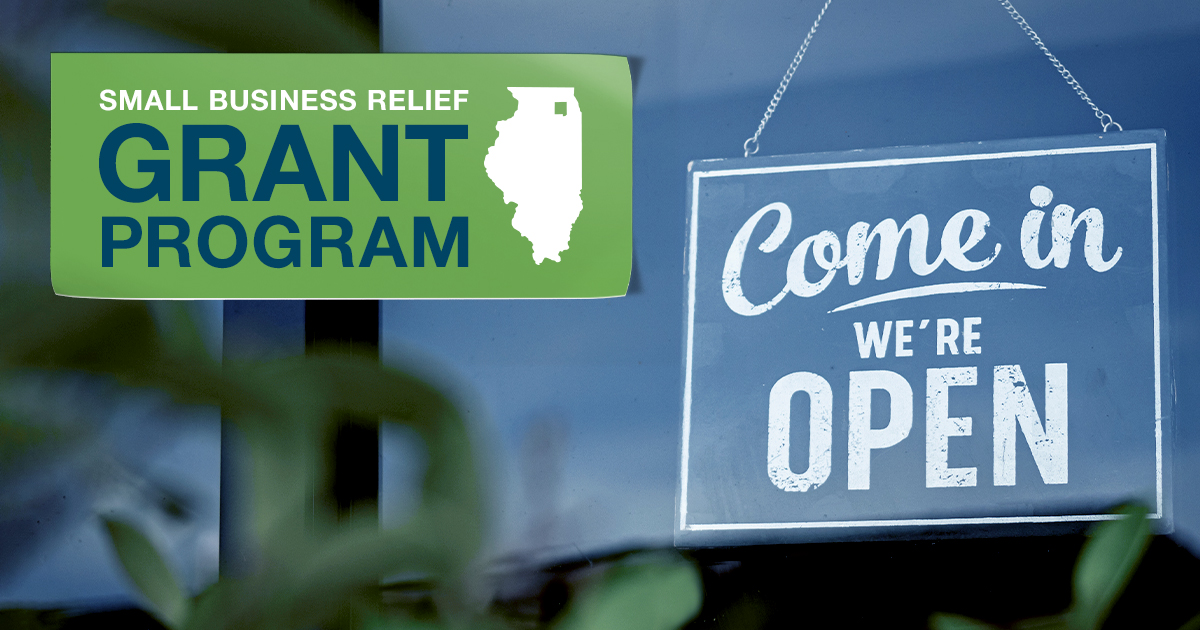The world gets pretty complicated, so when it comes to 2023’s Smartest, Sleekest & Healthiest Workplaces, we’re keeping things simple.
This year, we’re featuring workplaces in DuPage County that are designed, above all, for workers.
Why? Because a thoughtfully designed workplace is more than just a place to work. The right workplace can:
- Motivate employees to be more productive.
- Provide flexible spaces to account for varying workday needs.
- Entice hybrid and remote workers to come into the office.
- Help companies attract talent in a competitive market.
As always, we only featured the best of the best. Each workplace here is among the Smartest, Sleekest & Healthiest in DuPage County. Above all, these spaces are designed for the employee experience—they work harder, so you can work smarter.
Ready? Let’s get to work!
Ag Growth International (AGI)
Naperville, IL | Farm & Commercial Equipment Solutions
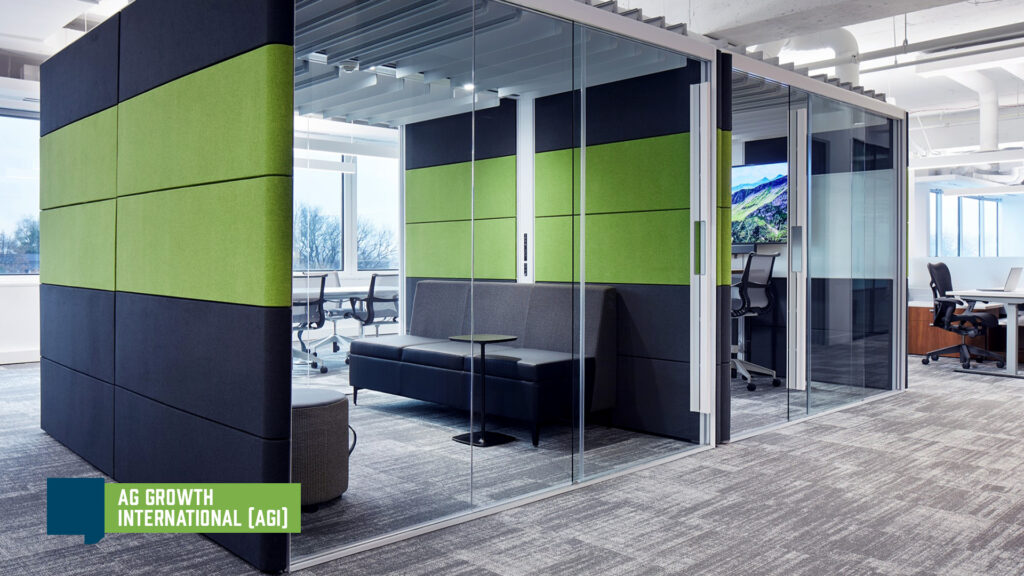
Housed in The Shuman (a Class-A office building in Naperville we featured in 2022) AGI’s 45,000-SF U.S. headquarters features a sleek modern design.
But wait—there’s a twist. Among the polished glass and trendy furniture, you’ll find vases of dried wheat, fields of green, corrugated metal a la grain silos, and images of corn about as high as an elephant’s eye.
Beyond the silos and soybeans, what makes this office distinctly “AGI” is its adaptability.
Since 1996, AGI has continuously evolved to keep up with the ever-changing agricultural landscape. Likewise, their Naperville office is designed to keep up with employees’ ever-changing workday needs.
Quick brainstorm? Grab a booth. Need to focus? There’s a space for that. Celebrating a birthday? Get together at the social hub—and maybe grab an espresso or sparkling water on the way.
As a workplace that puts the employee experience first, AGI’s Naperville headquarters is the cream of the crop.
About AGI
Founded in 1996, AGI is the global leader in the planning, engineering and manufacturing of solutions and systems for five key sectors: fertilizer, seed, grain, feed, and food. Today, AGI produces more than 35 brands and partners with customers on six continents.
IMEG
Naperville, IL | Engineering Consultants
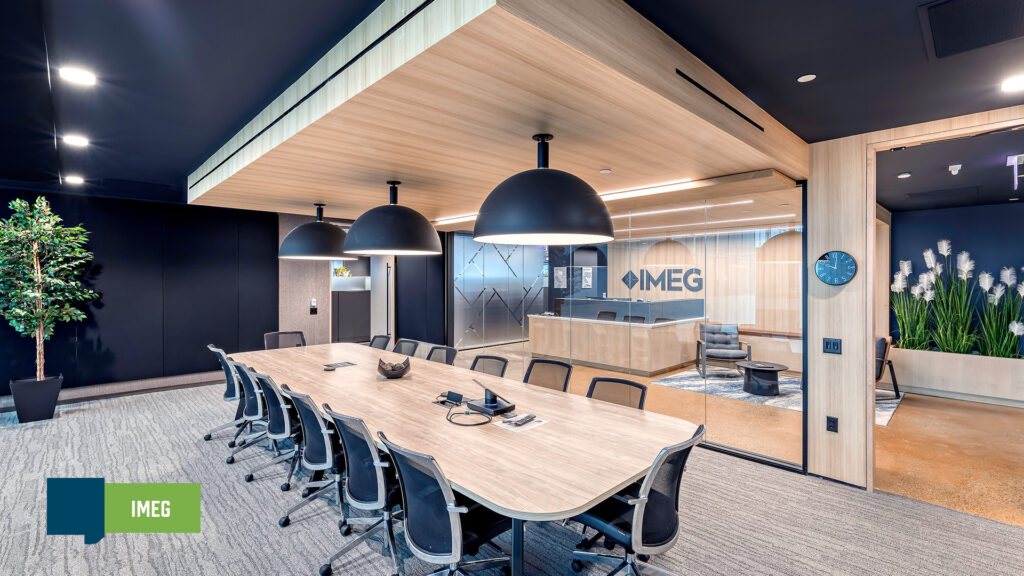
Another company that understands the value of employee experiences (and happens to be a fellow Shuman tenant) is IMEG.
Located on the fifth floor of the Class-A Naperville office building, IMEG’s 20,000-SF office has everything you’d expect from a world-class engineering firm: thoughtfully designed workspaces for collaborative and individual work, an industrial-chic vibe with playful pops of color, and the occasional engineering-themed art piece (including a framed patent of that all-important industry tool, the protractor). What makes this space truly unique is what’s not there. IMEG went with a clean, no-frills design. With few exceptions, the floors are exposed, polished concrete. And the ceilings? What ceilings? Look up, and you’ll see a network of exposed pipes, valves, and ducts.
In part, this industrial aesthetic is a nod to the company and its team members—engineers, after all, love taking things apart to see how they work. But it also aligns with IMEG’s sustainability goals. Less materials, more purpose.
While the office’s design is minimalist, its views are anything but. A glass-enclosed conference room near the fifth-floor entrance offers a spectacular view of The Shuman’s Main Atrium—making it the perfect place to get clients thinking about the “big picture.” The lunchroom, meanwhile, features 40-foot-high ceilings, floor-to-ceiling windows, and a gorgeous view of Naperville, including the iconic Carillon.
IMEG is all about “people-centered engineering”—the idea that spaces should be designed for the people who use them. That philosophy has served the company well over its hundred-year corporate history, and if you want to see it come to life, we recommend a trip to The Shuman.
About IMEG
As a leading design firm, IMEG delivers a powerful combination of comprehensive technical expertise and deep collaborative partnerships. Their trusted engineers design high-performance buildings and industry-leading infrastructure – everything from wastewater treatment plants to surgical suites – all while expertly navigating regulatory and teaming challenges. Today, IMEG has more than 2,200 team members across 75 locations.
Contractor: JC Anderson
Architect: G|R|E|C
Leeco Steel
Lisle, IL | Steel Processing & Distribution
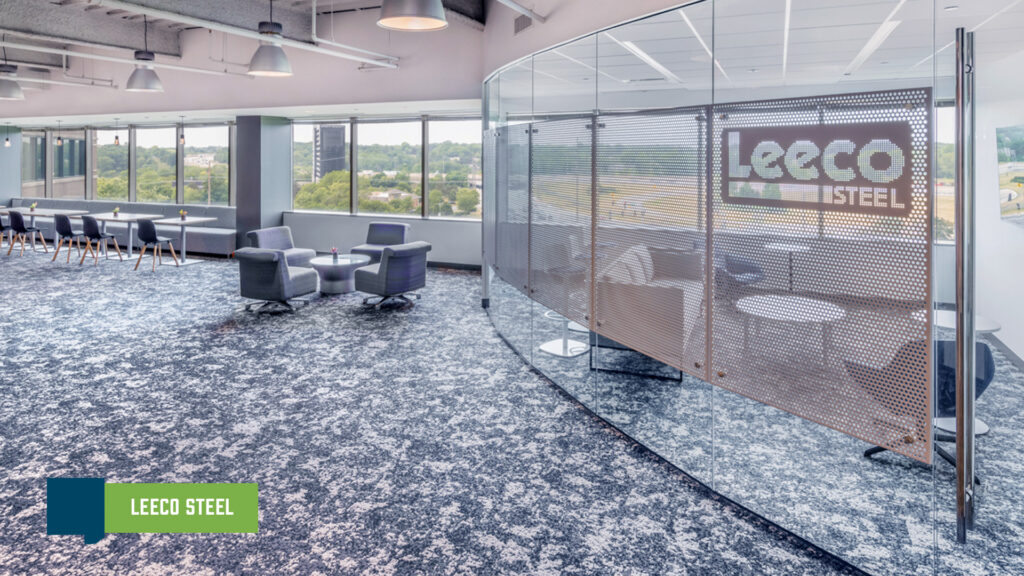
Given that they’ve been working with metal for 140 years, you’d be forgiven for assuming that Leeco Steel is a bit rigid. But before you make any assumptions, you should see their newly renovated Lisle headquarters.
Like many businesses in the post-pandemic world, Leeco Steel was working hard to get employees excited about returning to the office. The company had already built a forward-thinking, people-first culture, but there was one thing holding them back: the office itself. In 2022, they set out to change that.
Fast-forward to 2023, and Leeco has transformed a potential pain point into one of their best assets.
Their newly renovated, 19,119-SF Lisle headquarters provides the flexibility today’s top workers demand. Collaborative workspaces and private focus rooms make it easy to work how you want, where you want, while open seating areas are the perfect places to chat and blow off steam. Meanwhile, state-of-the-art technology facilitates smoother video conferences and presentations with clients and offsite team members.
Here, the sparks fly. No, really—large-format pictures from Leeco Steel’s processing centers show how the metal is cut for customers. For team members, these serve as a good reminder of their work’s tangible impact.
At the same time, with big windows and bright pops of color, this modern office feels less like a factory and more like a creative workshop, a space where good ideas are made and bonds are forged. Strong as steel, of course.
About Leeco Steel
Leeco Steel is North America’s largest steel plate supplier. Founded in 1882, the company is well-known for its deep inventories of steel plate, which it processes and distributes from 10 locations. Leeco also provides processing services, including flame cutting, drilling, and shot blasting.
Architecture & Design Firm: Wight & Company
Photo Credit: Ross Creative Works
BDO
Oak Brook, IL | Accounting
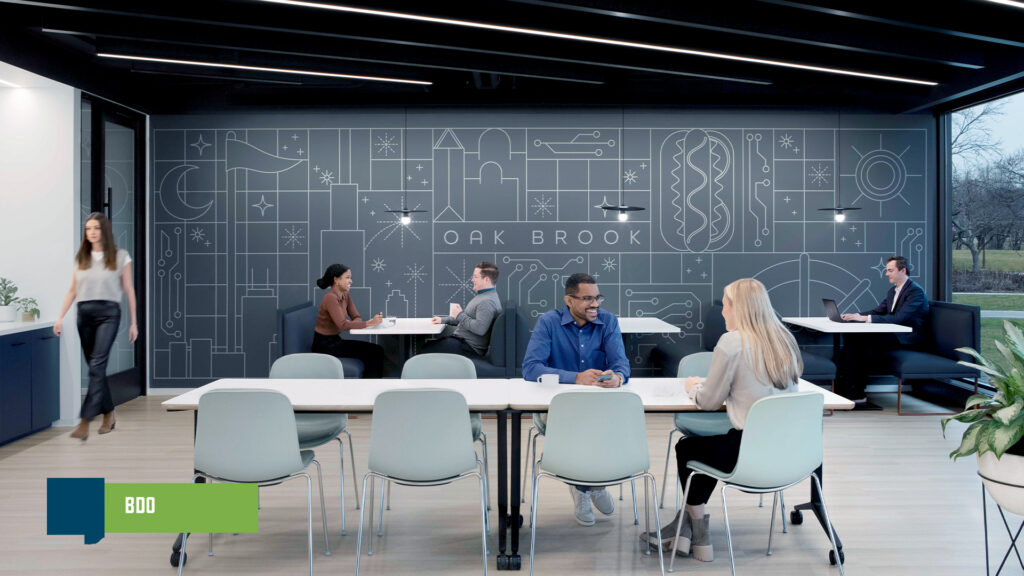
When it comes to work, boundaries are usually a good thing. At the same time, some of the best workplaces are the ones that blur the lines between the office itself and the environment around it. Especially when that environment is really, really beautiful.
Case in point: BDO’s Oak Brook headquarters.
Located in Oak Brook Reserve on the former McDonald’s campus, BDO’s 25,000-SF office blurs those lines in the best way.
Floor-to-ceiling windows showcase the lakes, fields, and tree-lined walkways just beyond the former Hamburger University building. Meanwhile, natural materials like wood tambour panels, National Park-themed conference rooms, and other subtle touches bring the outside world in.
The result? Team members and clients never feel far from nature.
Speaking of nature, employees at the office are free to work in whatever way feels most natural to them. Like many of the workplaces featured here, BDO’s Oak Brook office is designed for maximum flexibility, with a variety of working environments for collaboration and focused tasks.
Nowhere is this approach more prominent than the café. While most businesses would be satisfied with a nice lunchroom, BDO wanted to do more with their space. Now, they have a single room that can easily transform from a café to an employee training center, or even an auditorium-style setup for events and presentations.
As the inaugural prominent occupant of Oak Brook Reserve, BDO’s new office is a showcase for the sprawling suburban campus. Gensler, the architecture firm that designed the original McDonald’s headquarters in 1988, took point on the BDO design. Together, Gensler and their first major tenant are reusing and revitalizing the iconic Oak Brook space, welcoming others to bring nature into their workdays—and vice versa.
We’d say they’re off to a beautiful start.
About BDO
BDO is a leading global accounting network headquartered in Chicago. Their experienced professionals provide middle-market leaders with insight-driven perspectives, as well as assurance, tax, and advisory services.
Architecture & Design: Gensler
Engineering: Cartland Kraus Engineering, Ltd.
General Contractor: Norcon Inc.
Furniture Solutions: Corporate Concepts
West Side Tractor
Lisle, IL | John Deere Parts Supply, Repair & Customer Service
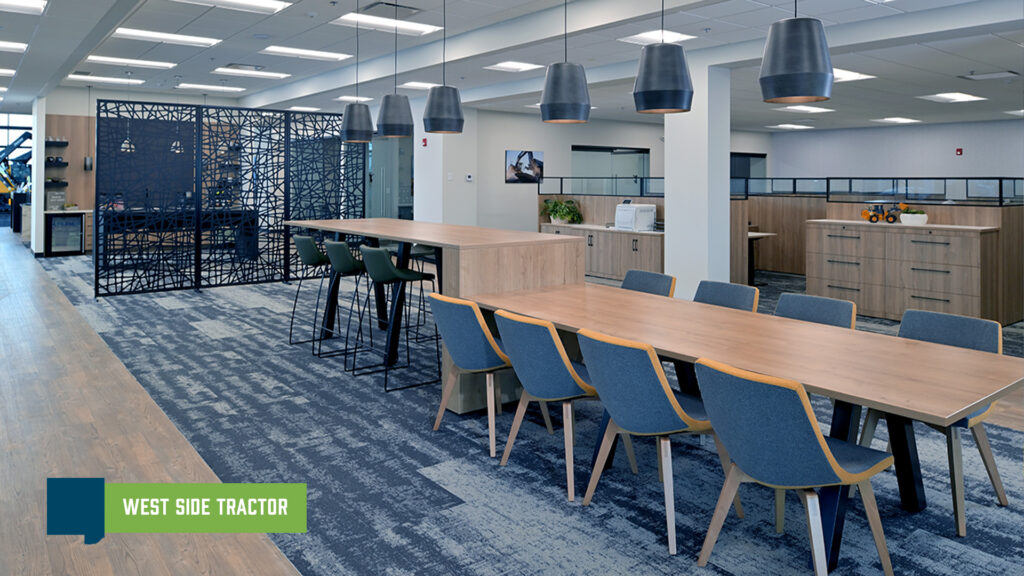
Arriving at West Side Tractor’s Lisle headquarters, you can’t help but notice all the “toys.”
The facility, which opened in 2020, features a glass-enclosed “toy box,” a towering showroom housing ten (literal) giants of the tractor world. These include the 1920 Waterloo Boy, John Deere’s first foray into the tractor world, as well as a 1959 Model 440 Loader Backhoe – one of the first machines that West Side Tractor founder Richard W. Benck sold. (Look closely at the Model 440, and you’ll even find a decal from the family-owned business’ original Lisle facility.)
History is front and center at the new West Side Tractor headquarters, but with cutting-edge customer and employee experiences around every corner, it very much feels like a workplace of the future.
For customers, there’s an accessible parts counter, an interactive lobby kiosk, and a curbside pickup zone, all of which make it easy to get in, get out, and get on with your day. For those looking to take a deeper dive, there’s the state-of-the-art training area. Here, West Side team members can deliver custom presentations, like machine walk-arounds and safety courses.
For employees, it’s all about having what you need, when you need it. Each of the 16 bays in the servicing and repair shop features a tool bench and ergonomic workstation, complete with a laptop technicians can use to run diagnostics and access records.
Collaborative spaces throughout the facility encourage teamwork and creativity, while large touchscreens in the service manager office make it easy to access helpful information, including a digital map showing the real-time locations of service vehicles. Finally, the attention to accessibility extends to the female technician locker room, which features a nursing room.
“This is a place where we can innovate and grow, add new products, and expand our team,” says Lauren Coffaro, third-generation owner. “This new Lisle facility, this is for the future,”
Want to see the future of West Side Tractor for yourself? Take a tour of their Lisle headquarters here.
About West Side Tractor
Founded in 1962, West Side Tractor is the John Deere construction heavy equipment distributor for Illinois, Indiana, and Michigan. Family-owned and operated for more than 60 years, West Side Tractor provides sales, service, rental, parts, and technology solutions to construction companies across the Midwest.
Architecture & Design
Greenleaf Foods, SPC
Lisle | Plant-Based Food
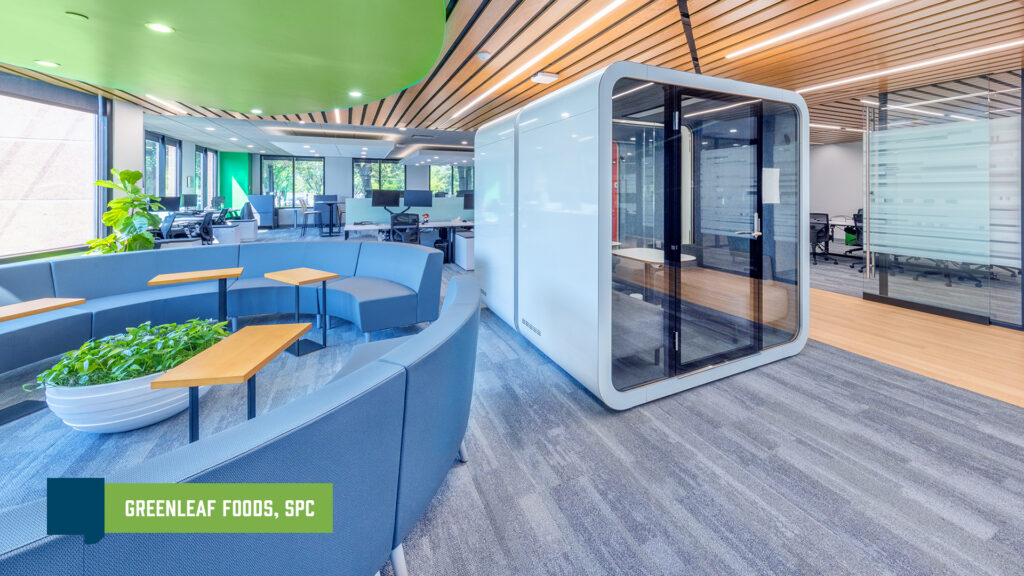
For office workers everywhere, lunch is serious business. Beyond the necessity of replacing burned-up mental calories, the midday meal is a chance to talk turkey with coworkers, get some fresh air, and divide the day into manageable, bite-sized pieces.
But nowhere is lunch – and food, in general – more serious than in the kitchen of Lisle’s Greenleaf Foods Innovation Center.
This is no ordinary office kitchen, mind you. This is the Greenleaf Test Kitchen, a Dexter’s Laboratory of culinary creation. Here, among the high-end ovens, stovetops, fryers, and presses, the pioneers of the #1 meatless hotdog are cooking up their next ingenious invention.
Greenleaf Foods, SPC (which we previously featured) makes some of the world’s most popular plant-based protein brands, including Lightlife® and Field Roast Grain Meat Co. Of course, in a competitive market, where new products hit the shelves every day, Greenleaf can’t afford to rest on its lettuce (we mean ‘laurels’).
That’s where the Innovation Center comes in. Expanded in 2020, Greenleaf’s high-tech, 23,000-SF facility has all the right ingredients for creativity and collaboration. A variety of social spaces, brainstorm rooms, conference rooms, and focus areas give team members the flexibility they need to do their best work. Meanwhile, the office’s cutting-edge laboratory, pilot plant, and test kitchen provide spaces where fresh ideas can grow from scratch.
About Greenleaf Foods, SPC
Plant-based pioneer Greenleaf Foods, SPC produces some of the most popular meatless foods on the market. Their portfolio includes Lightlife®, maker of the #1 brand of tempeh and the #1 plant-based hot dog in the U.S., as well as Field Roast Grain Meat Co.
Project Manager & General Contractor
Conference Center at Hamilton Lakes
Itasca | Event Space
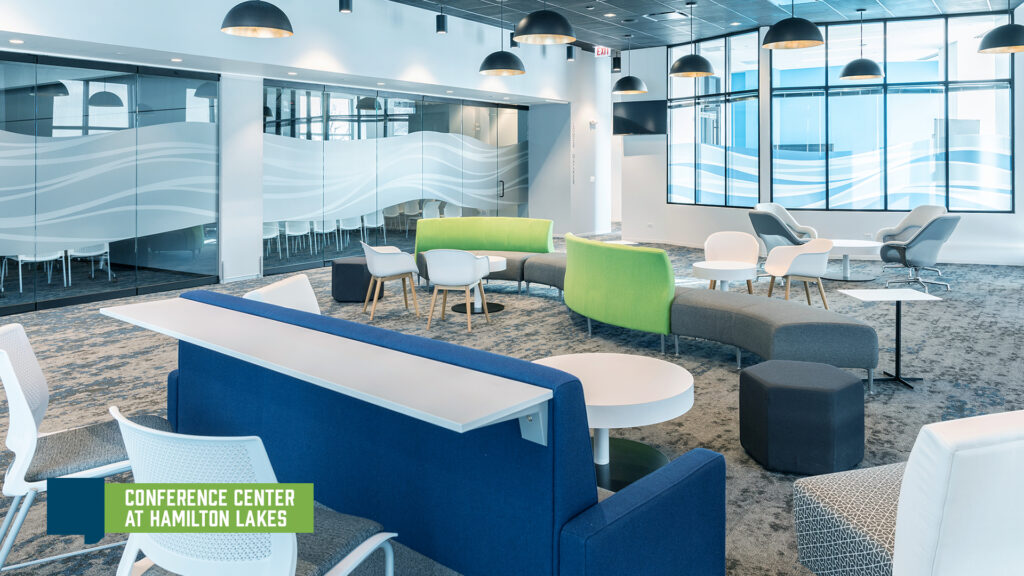
If you’ve ever planned an event, you know that finding the perfect space can feel next to impossible.
Unless, that is, you’re at Hamilton Lakes Business Center in Itasca, in which case the event space of your dreams is just a quick elevator ride away.
Offering 8,400-SF of flexible space, the Conference Center at Hamilton Lakes is designed for gatherings of up to 200 people. Whether it’s a big client meeting or an informal brainstorm, an employee education seminar or a networking event, the Conference Center has everything you need to make it amazing.
Here, flexibility is king. The four main rooms can be configured in a variety of arrangements, while state-of-the-art technology ensures a smooth experience for you and your guests.
Most importantly, the Conference Center is simply cool. Abundant natural light, pops of color, and a sleek modern design create a vibe somewhere between energetic startup, high-end office, and your favorite coffee shop. Meanwhile, the sheer variety of workspaces – from cozy nooks and collaboration-friendly corners to large conference rooms – make it easy for guests to find their ideal space, even as their needs shift throughout the day.
Whether you’re entertaining clients in the kitchen or soaking up the lakeside views, the Conference Center at Hamilton Lakes is a place where you can feel creative, focused, collaborative, and free to be you.
Book Now
The Conference Center at Hamilton Lakes is currently available for full-day and half-day rentals, with discounted pricing for tenants. Contact Hamilton Lakes to learn more.
About Hamilton Lakes
Located at the intersection of the Elgin O’Hare Expressway and I-355 in Itasca, Hamilton Lakes Business Park offers 3.5 million square feet of office space and 32 additional acres of undeveloped land. The Business Park is also home to the Westin Hotel, beautiful outdoor areas, social gathering spaces, an athletic club, a daycare center, and full-service restaurants and delicatessens.
2200 Cabot
Lisle | Office Space
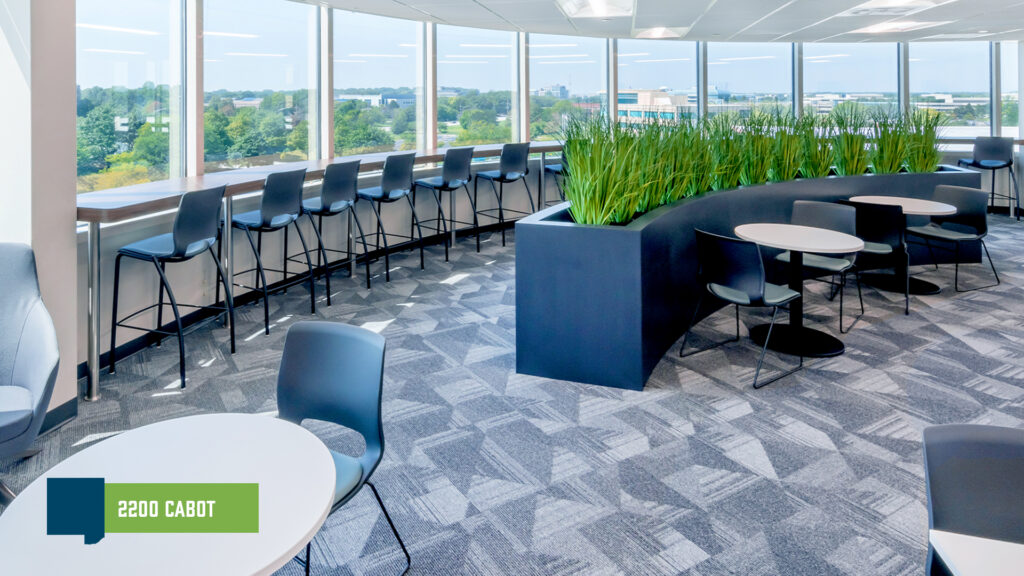
If 2200 Cabot Drive feels like a fresh twist on a classic office design, it’s because that’s exactly what it is.
Even before its recent renovation, this iconic five-story glass-and-granite building had “good bones.” Located in Lisle’s 64-acre Corporate Lakes development, 2200 Cabot already had a convenient location, ample parking (including heated underground executive spaces), and a stunning two-story atrium. What more could you ask for?
Quite a lot, apparently. In 2020, RE Development Solutions gave the building a full renovation, modernizing its design and introducing several new amenities to enhance workday experiences.
This was no mere facelift. The renovation included a full lobby refresh – it now feels like the grand entrance of a boutique downtown hotel – as well as the addition of a full-service deli, a building conference room, and a penthouse lounge space with panoramic views of nature.
Somewhat less dramatic (but no less important) are the infrastructure upgrades, including a new roof, HVAC automation, and more.
With good bones and a sharp new design, the newly renovated 2200 Cabot has everything tenants need to deliver outstanding employee experiences—and we can’t wait to see what they do with the place.
Learn more about 2200 Cabot here.
Project Manager & General Contractor
Designers
3500 Lacey
Downers Grove | Office Space
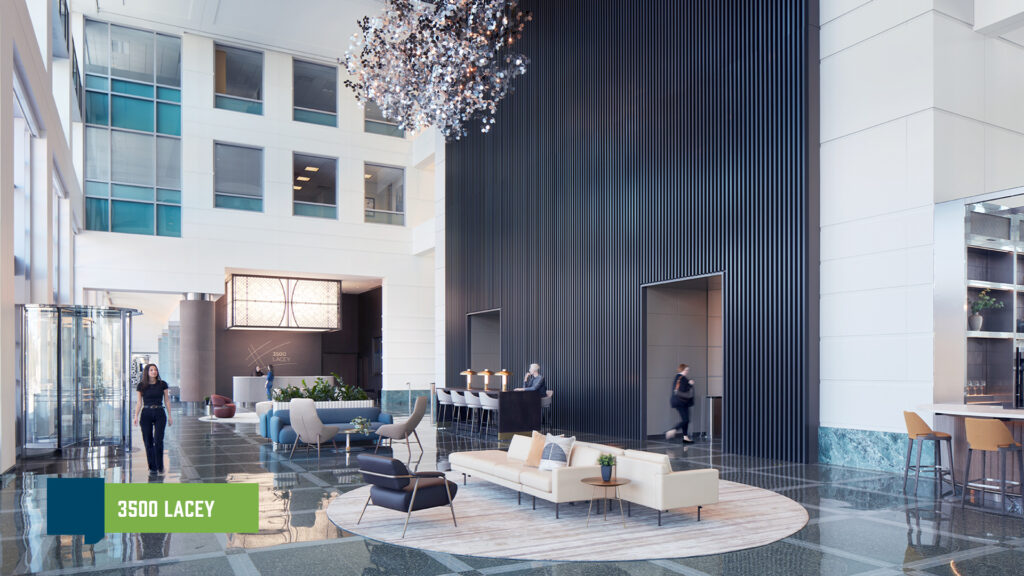
The day’s winding down (and so is our list). Before heading home, you grab a quick bite at your favorite wine bar, chat with a colleague, listen to some live music, then swing by the local library.
And if you’re a tenant at 3500 Lacey, you can do all this without leaving the office.
The largest building in Downers Grove, 3500 Lacey was built in the late 1980s and acquired by KORE Investments in 2019. KORE, which has offices in Chicagoland and the Denver area, specializes in workplaces centered on health, wellness, and community.
After acquiring “Lacey,” they knew they wanted to incorporate new features that would bring their tenants and guests together like never before, while encouraging remote workers to return to the office.
In 2022, they set out to do just that. KORE transformed the lobby of 3500 Lacey into an inviting social space, complete with comfortable furniture, a stylish lighting fixture, and a piano for live music. The centerpiece of this renovated space is the Coffee/Wine Bar, 3500 Lacey Spirits. Here, guests can relax with a midmorning latte, a lunchtime snack, or an after-hours glass of wine.
KORE also introduced a cozy library and fitness center, as well as the new 3500 Lacey App. Using the app, tenants can easily order coffee, breakfast, and lunch, and stay up to date on what’s happening in the Lacey community.
“Just another day in the office” has never felt better.
About KORE Investments
KORE Investments is a commercial real estate owner/operator of office properties in Chicago and Denver, with an emphasis on suburban developments. KORE focuses first and foremost on the experiences of their tenants and the people who work in their buildings, delivering flexible spaces that activate communities, promote healthy lifestyles, and foster positive workplace cultures. Today, the company donates a portion of their profits to local charities and nonprofits.
Take a tour of 3500 Lacey here.
Designer
General Contractor
Keep Exploring the Offices and Workplaces of DuPage County, Illinois
DuPage is home to a diverse ecosystem of businesses from a variety of industries. Over decades of growth and evolution, this ecosystem been nurtured by our diverse workforce (more than 640,000 strong), our education system, our regional supply chain, our pro-business policies, and the high quality of life that helps us attract top talent.
With that economic growth has come a flourishing office market, where local businesses are introducing bold innovations that turn their ‘workplaces’ into collaborative environments, social spaces and impactful customer experiences.
Want to see more of DuPage’s smartest, sleekest and healthiest workplaces? Take a look at our past lists:
The Smartest, Sleekest, and Healthiest Workplaces: 2020
The Smartest, Sleekest, and Healthiest Workplaces: 2021
The Smartest, Sleekest, and Healthiest Workplaces: 2022


